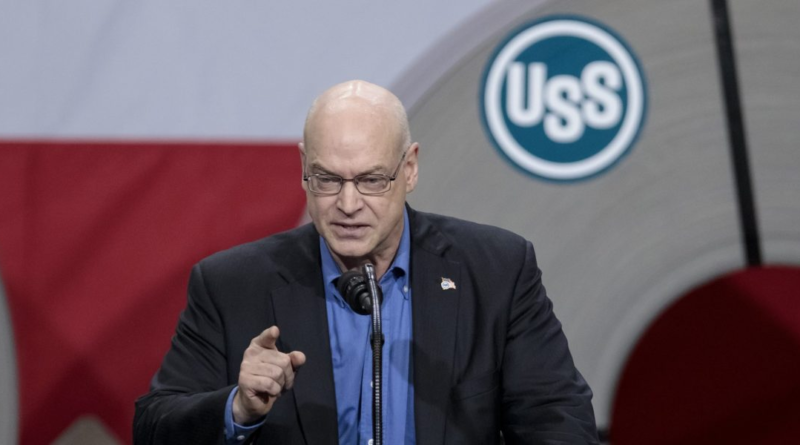Industrial sector jolted as U.S. Steel rejects 'unreasonable' $7.25 billion bid from archrival Cleveland-Cliffs
United States Steel Corp. has rejected a takeover offer from rival Cleveland-Cliffs Inc. that promised to create one of the world’s biggest steelmakers, and will begin a review of its strategic options instead.
US Steel, an icon of American industry with roots stretching back over a century, on Sunday announced a formal process to assess its alternatives after receiving multiple approaches for parts or all of the business. About three hours later, Cliffs went public with its cash and share bid, which values the company at about $7.25 billion based on closing prices on Friday, representing a 43% premium.
Cliffs said it submitted the proposal privately on July 28 and received a rejection letter on Sunday, calling the offer “unreasonable.” It remains ready to engage further.
Cliffs, which was traditionally an iron ore miner rather than a steelmaker, has been the most active dealmaker in the US industry in recent years — first snapping up AK Steel Holding Corp., and then buying the US business of European steel giant ArcelorMittal. The purchases made Cliffs a key operator of traditional blast furnaces in the US, and gave it a massive foothold in the highly profitable business of steelmaking for the car industry.
A deal with US Steel would catapult Cliffs into the ranks of the top steel producers globally, a list that is dominated by China. The combined company would hold a powerful position as the primary supplier to the automotive industry, as well as ownership of 100% of domestic iron ore reserves.
The bid comes at a time when producers including US Steel are predicting that domestic demand will benefit from green-energy infrastructure and manufacturing projects, bolstered by the Inflation Reduction Act.
But it also shines a light on one of the key dynamics in the global steel industry: the divide between the traditional blast-furnace production of steel from iron ore, and the more efficient, cost-effective and lower-emission plants that remelt scrap and turn it into steel, called electric-arc furnaces.
Cliffs Chief Executive Officer Lourenco Goncalves, known for his combative personality and who never shies from publicly stating his opinions, still has little footprint in electric arc furnaces.
However, US Steel, which traces its roots back to 1901 when J. Pierpont Morgan merged a collection of assets with Andrew Carnegie’s Carnegie Steel Co., has undergone a dramatic shift in recent years under CEO David B. Burritt, as its investment focus pivoted toward the more modern plants.
Burritt, who took the helm of the then-struggling metal producer in 2017, purchased Big River Steel in Arkansas and expects to pour an additional $3 billion in the operation by 2024 to double its capacity. The bet has paid off, with shares of the company doubling since the end of 2019, although the stock has retreated 9.3% this year. Cliffs has declined 8.8% in 2023.
Ohio-based Cliffs said on Sunday it offered to pay $17.50 in cash and 1.023 of its shares for each US Steel stock. That implies a value of $32.53 per share as of Friday’s close, a 43% premium to US Steel’s last closing price of $22.72 and values the Pittsburgh-based company at about $7.25 billion.
“Although we are now public, I do look forward to continuing to engage with US Steel on a potential transaction, as I am convinced that the value potential and competitiveness to come out of a combination of our two iconic American companies is exceptional,” Goncalves said in the statement.
US Steel has hired Barclays Capital and Goldman Sachs as financial advisers for its strategic review. The steelmaker hasn’t set a deadline for the review to be completed, and the process may not result in a transaction or any other strategic outcome, the company said in its statement.
Cliffs is being advised by Moelis & Company LLC, Wells Fargo, JPMorgan and UBS, and Davis Polk & Wardwell LLP is serving as its legal counsel.



